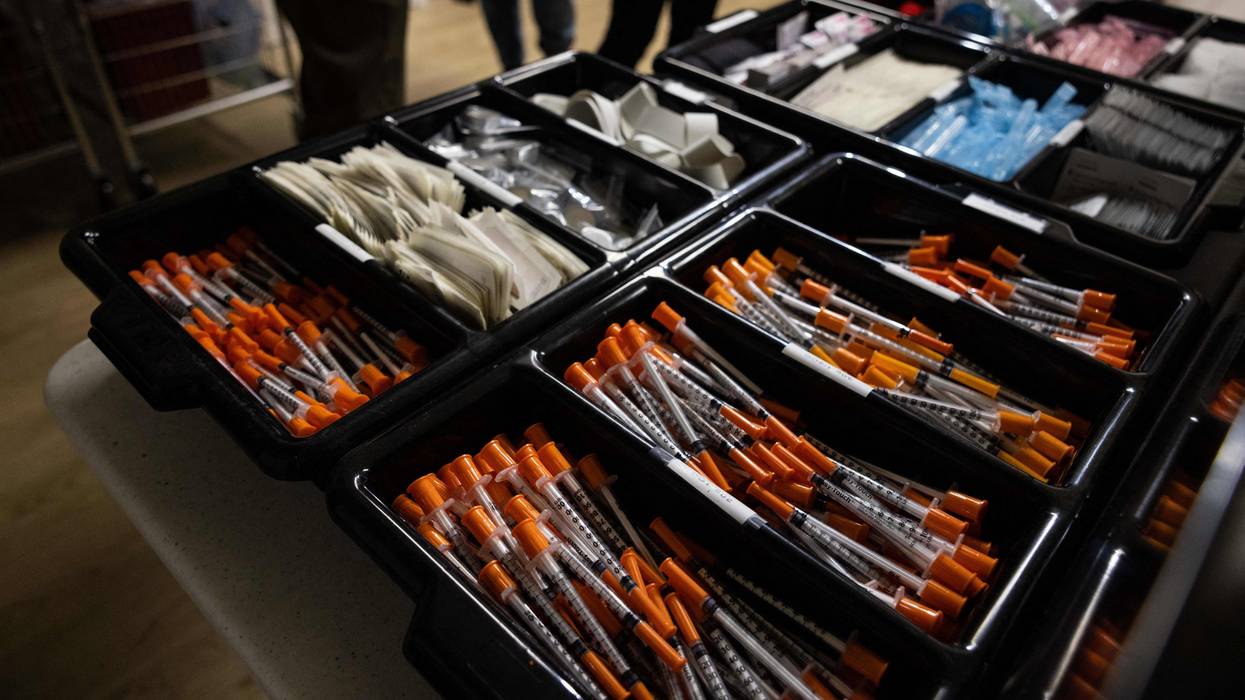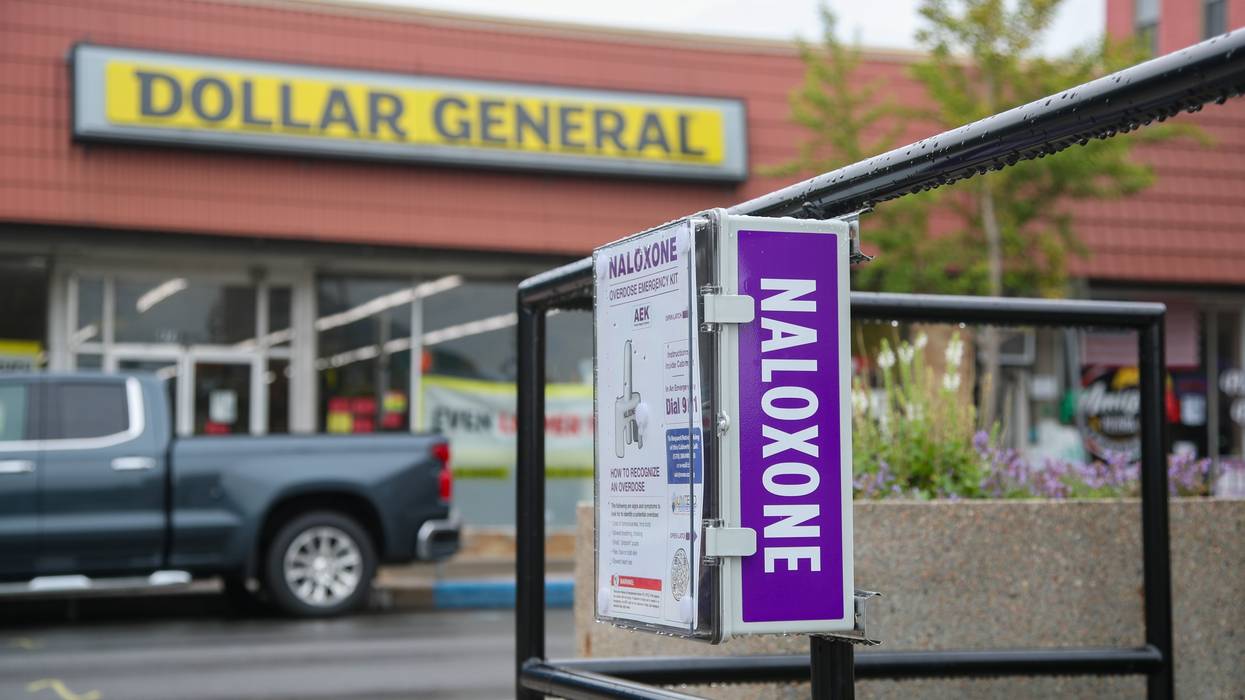The Centers for Disease Control and Prevention (CDC) reported that an estimated 80,391 people in the U.S. died of drug overdoses in 2024—a 27% drop, with about 30,000 fewer deaths than in 2023 and "more than 81 lives saved every day."
Synthetic opioids like fentanyl were still involved in most overdose deaths last year, but those deaths were down 37% between 2023-24.
"I would characterize this as a historically significant decrease in overdose deaths," Brandon Marshall, a Brown University School of Public Health epidemiologist, told The Washington Post. "We're really seeing decreases almost across the entire nation at this point."
Experts noted that numerous factors are likely behind the plunging fatal overdose numbers. The CDC said it has been able to strengthen overdose prevention capacities across the U.S. since Trump declared the opioid crisis a public health emergency in 2017 during his first term, making congressional support available.
As CNN reported, with new federal support, local policymakers in places like Mecklenburg County, North Carolina have been able to secure vending machines with naloxone, a medication that can rapidly reverse an opioid overdose; employ epidemiologists who focus on opioid trends to prevent deaths; and infrastructure that has helped public workers determine where to target their overdose prevention work.
But the CDC's National Center for Injury Prevention and Control, which funded those programs, was targeted by the so-called Department of Government Efficiency earlier this year as its Trump-appointed leader, billionaire tech CEO Elon Musk, sought to cut federal jobs. The center is also identified as a "duplicative, DEI, or simply unnecessary" program that should be cut in the White House's proposed budget.
"Any changes or impacts to those funding streams would mean that we either have to find other funding to support the team that works in that department, or we would have to lay them off. That would, of course, impact the work," Dr. Raynard Washington, director of the county health department, told CNN. "Experts work hand-in-hand with us on the strategies that we choose to implement on the ground, and then how we're evaluating what's working, and then how we share those best practices. That technical assistance is also just as invaluable as the actual grant dollars that we receive."
Medicaid cuts in the proposed budget, which would slash $880 billion in federal spending to secure tax cuts for the wealthiest Americans and corporations, could also reverse the historic progress made in 2024, as the healthcare program covers 47% of people with opioid use disorder and 64% of people who receive outpatient treatment.
Chad Sabora, a drug policy expert who helped spearhead the letter, told The Washington Post that cuts to Medicaid will leave people without medications they use to diminish the effects of opioid use disorder, like buprenorphine.
"It will equal more people dying," he told the Post.
On Monday, more than 320 faculty members from universities and other institutions wrote to Republican and Democratic Senate leaders to warn them that "dismantling the lifesaving work" of the CDC and other health agencies in the budget would have "dire consequences."
"At a time when the federal government should be boosting investments in behavioral health systems, service delivery, and public health surveillance programs, we are seeing drastic cuts to key agencies, including the Substance Abuse and Mental Health Services Administration (SAMHSA), the CDC, and the Health Resources and Services Administration (HRSA)," they said.
The 2026 fiscal year budget proposes over $1 billion in cuts to SAMHSA—a reduction of 16% of its funding—and $3.6 billion in cuts to the CDC, or nearly half if its funding.
The faculty members listed a number of programs that will be impacted those cuts, including:
- State and local health departments and behavioral health agencies;
- Evidence-based prevention programs like community-based naloxone distribution, peer outreach programs, drug-use related infectious disease prevention programs, and drug test strip programs, which help people determine whether a drug is laced with fentanyl;
- The National Survey on Drug Use and Health (SAMHSA), which is used extensively by policymakers, researchers, and health professionals and gives accurate population estimates of trends in alcohol, tobacco, and other drug use; and
- The Addiction Medicine Fellowship Program and Substance Use Disorder Treatment and Recovery Loan Repayment Program (HRSA), which will train the next generation of substance use care specialists across the country, with special programs dedicated to rural areas.
"Members of Congress, we urge you to protect these vital substance use and mental health services. Millions of Americans are depending on you," wrote the experts.
The White House signaled in the proposed budget that it doesn't support evidence-based harm reduction programs funded through SAMHSA grants, calling them "dangerous activities."
Adams Sibley, a researcher at the University of North Carolina, told CNN that "now is the time to double down on efforts to educate and recruit folks into harm reduction and treatment, whatever their version of safer use looks like."
With fellow researcher Nabarun Dasgupta, Sibley tracked gradual declines in overdose deaths in cities and states over the past three years, before the national shift was seen in 2024.
They identified shifts in the population of drug users, with a growing number of people in the at-risk population taking advantage of newly funded treatment options—or having already died of overdoses—as one contributing factor to the plunging overdose death numbers last year, as well as a change in the supply of drugs available.
"The general dissatisfaction with the illicit opioid supply right now is surprisingly high," Dasgupta told CNN, pointing to the animal sedative xylazine, also known as "tranq."
Many users have reached an "inflection point" with their substance use disorders, said Sibley and Dasgupta, and policymakers must ensure the treatment and prevention programs funded by the CDC, SAMHSA, and other agencies are still there for them.
"The one thing that substance use treatment providers and people who use drugs alike will tell you is that people are ready when they're ready, and there are a lot of people ready right now," Sibley said.
Daniel Ciccarone, a researcher at the University of California, San Francisco, cautioned that even with last year's significant decrease, "we're still at very high levels of overdose."
"We need steady pressure," he told CNN. "To the degree that we stop paying attention... we will see a reversal."




